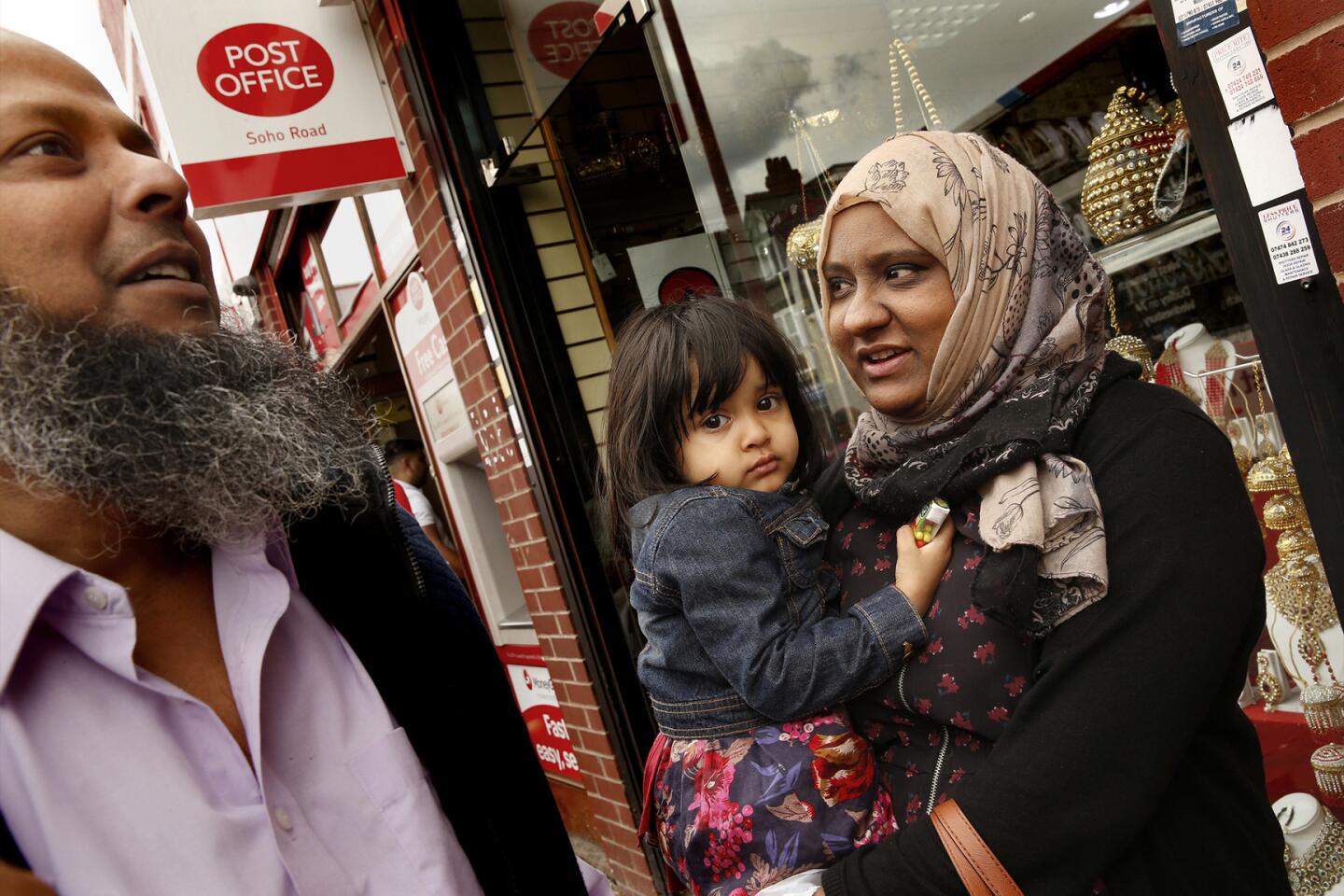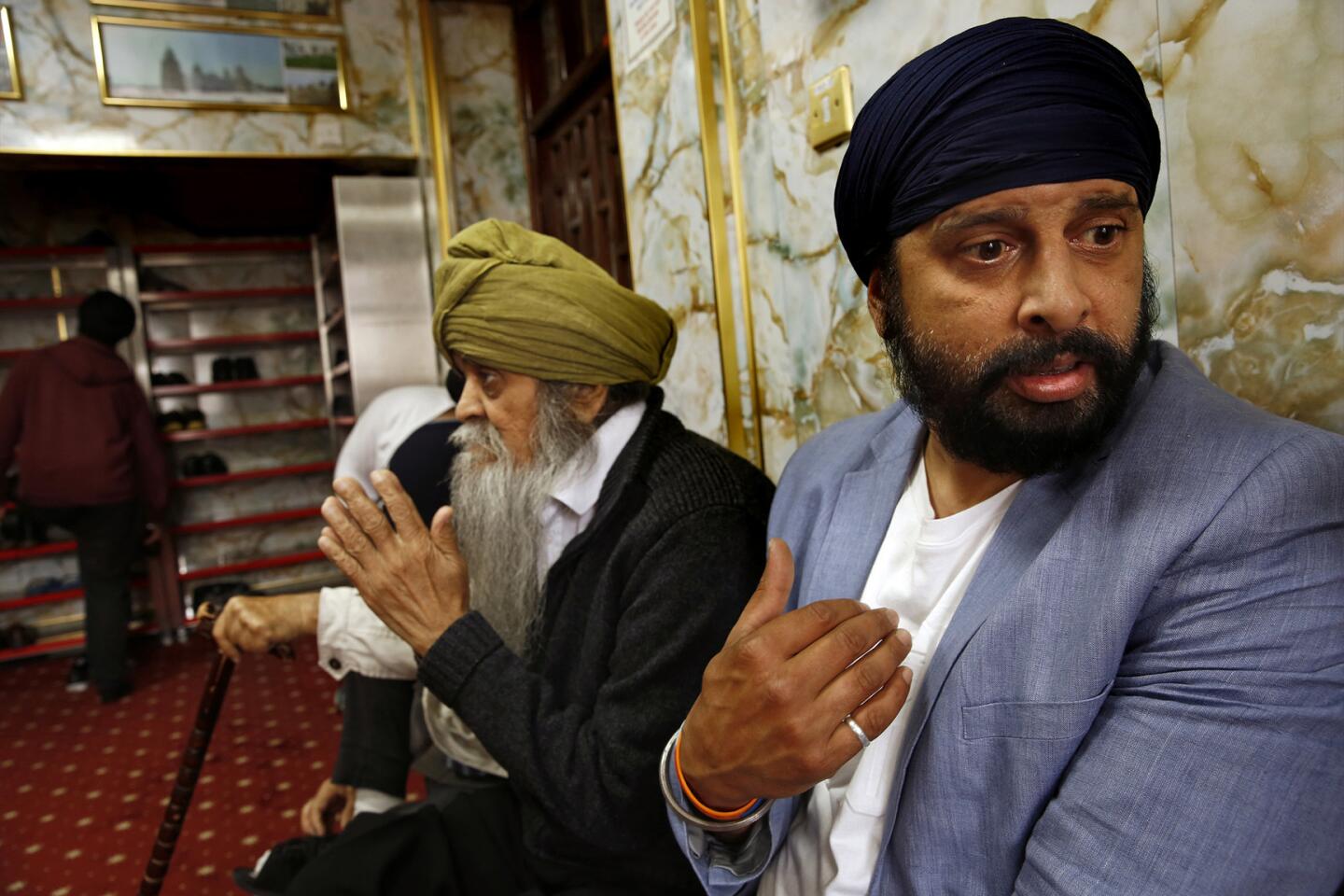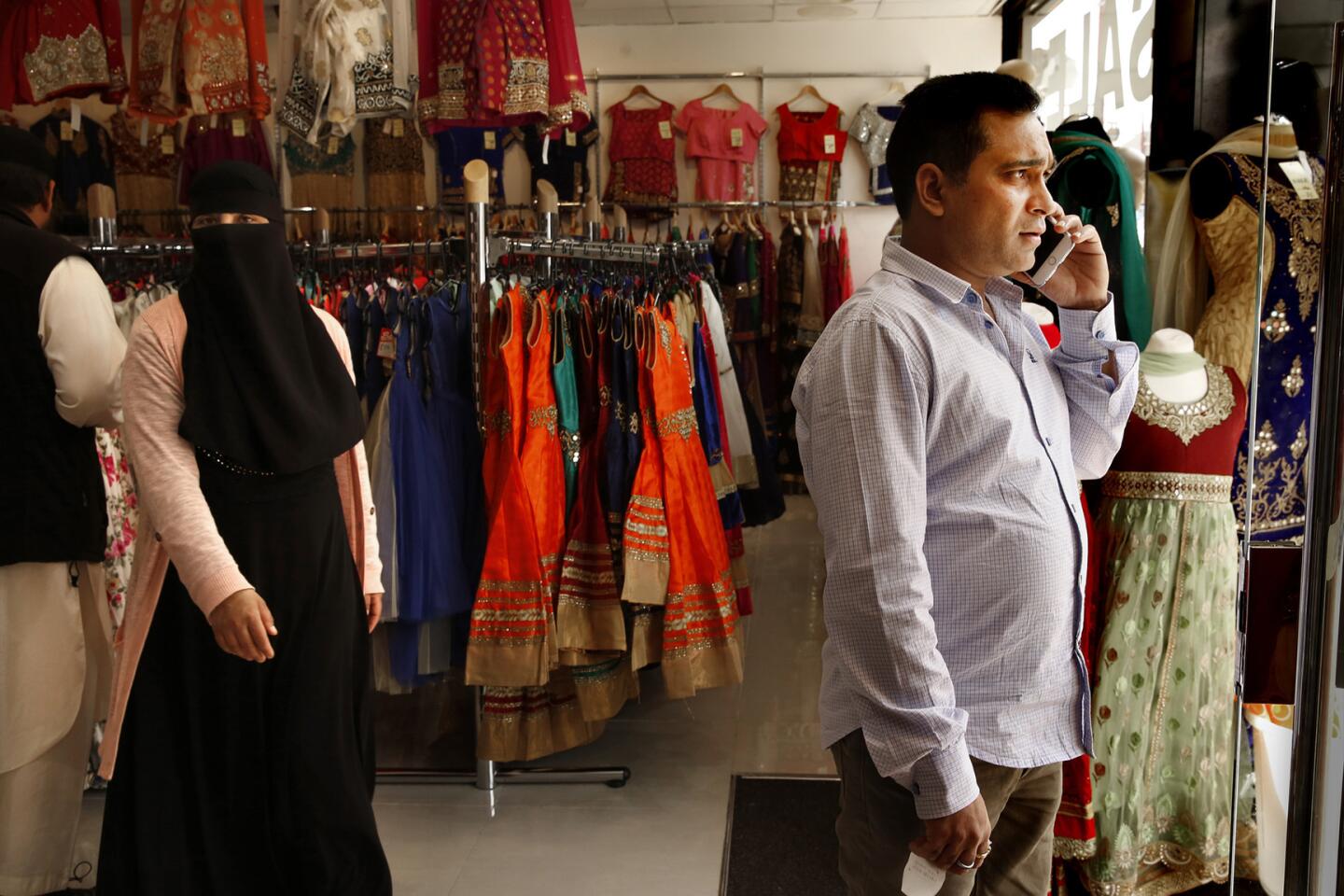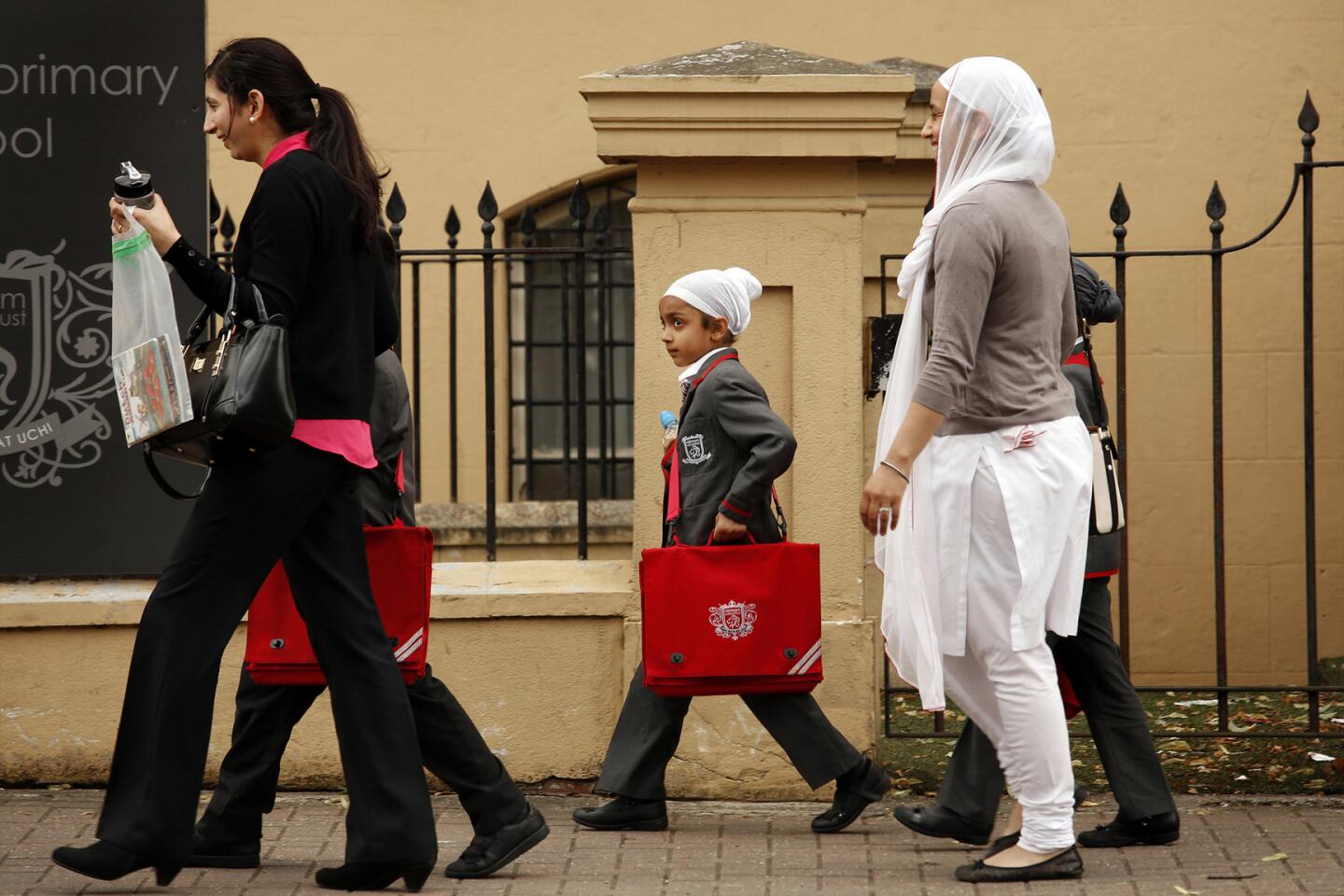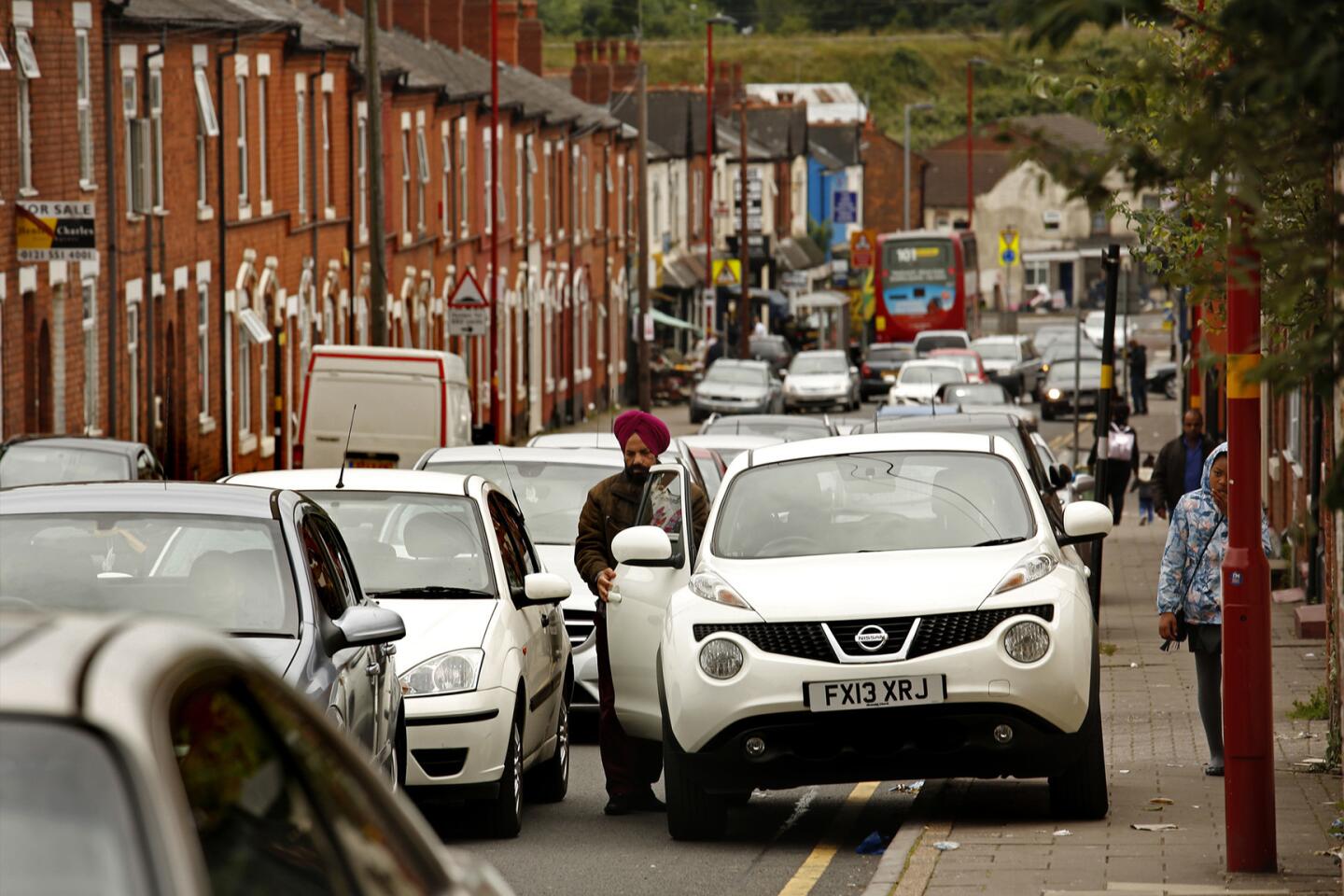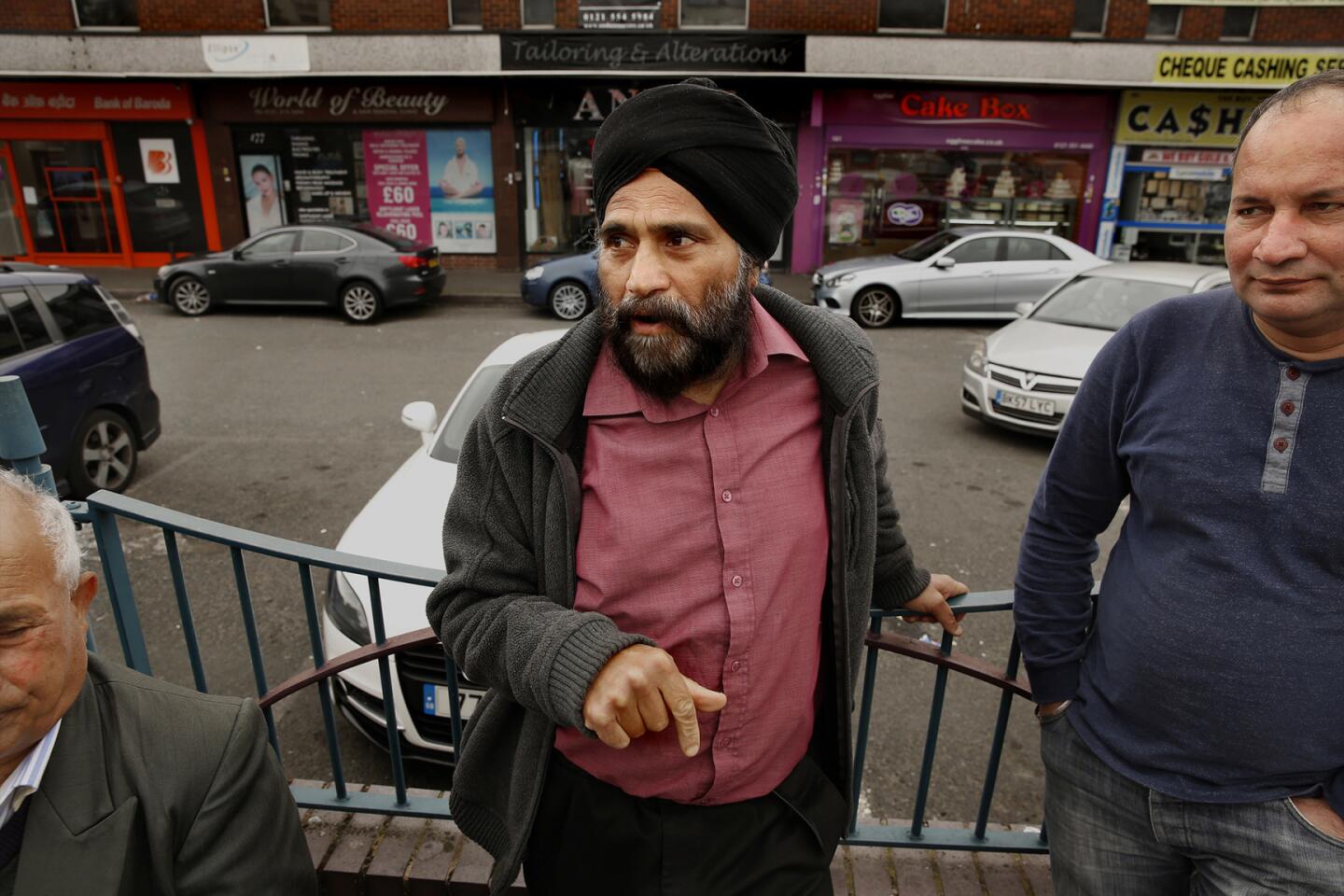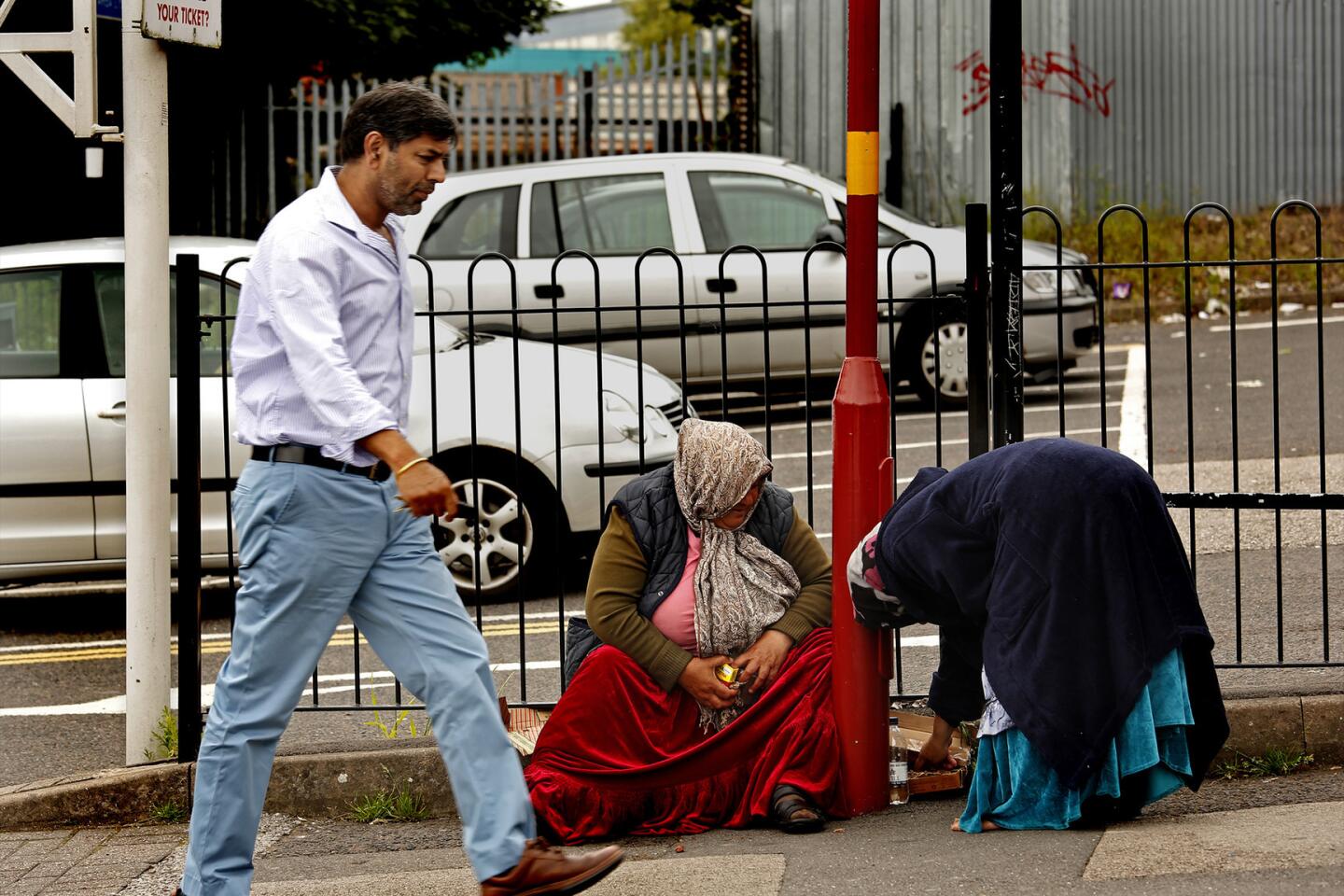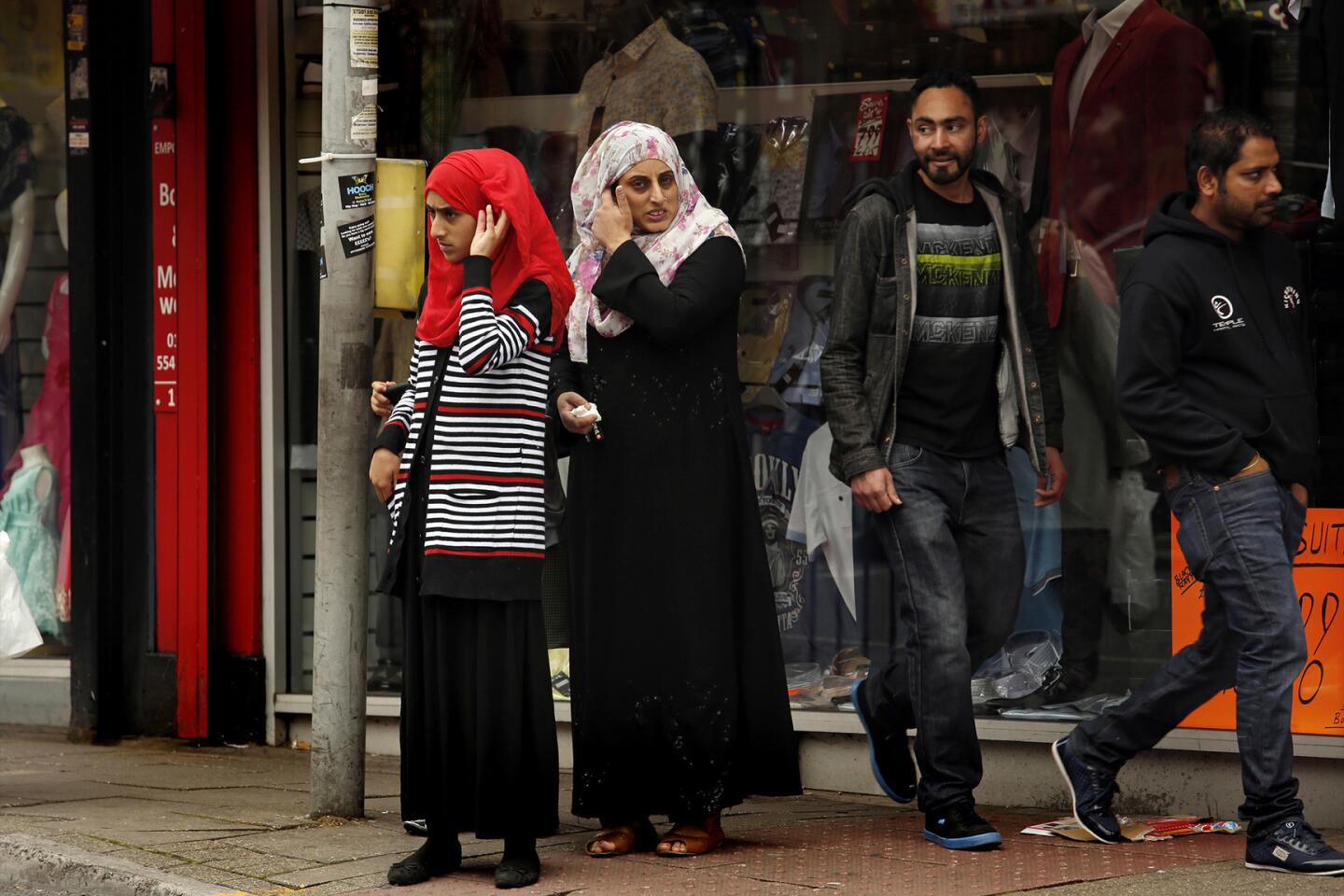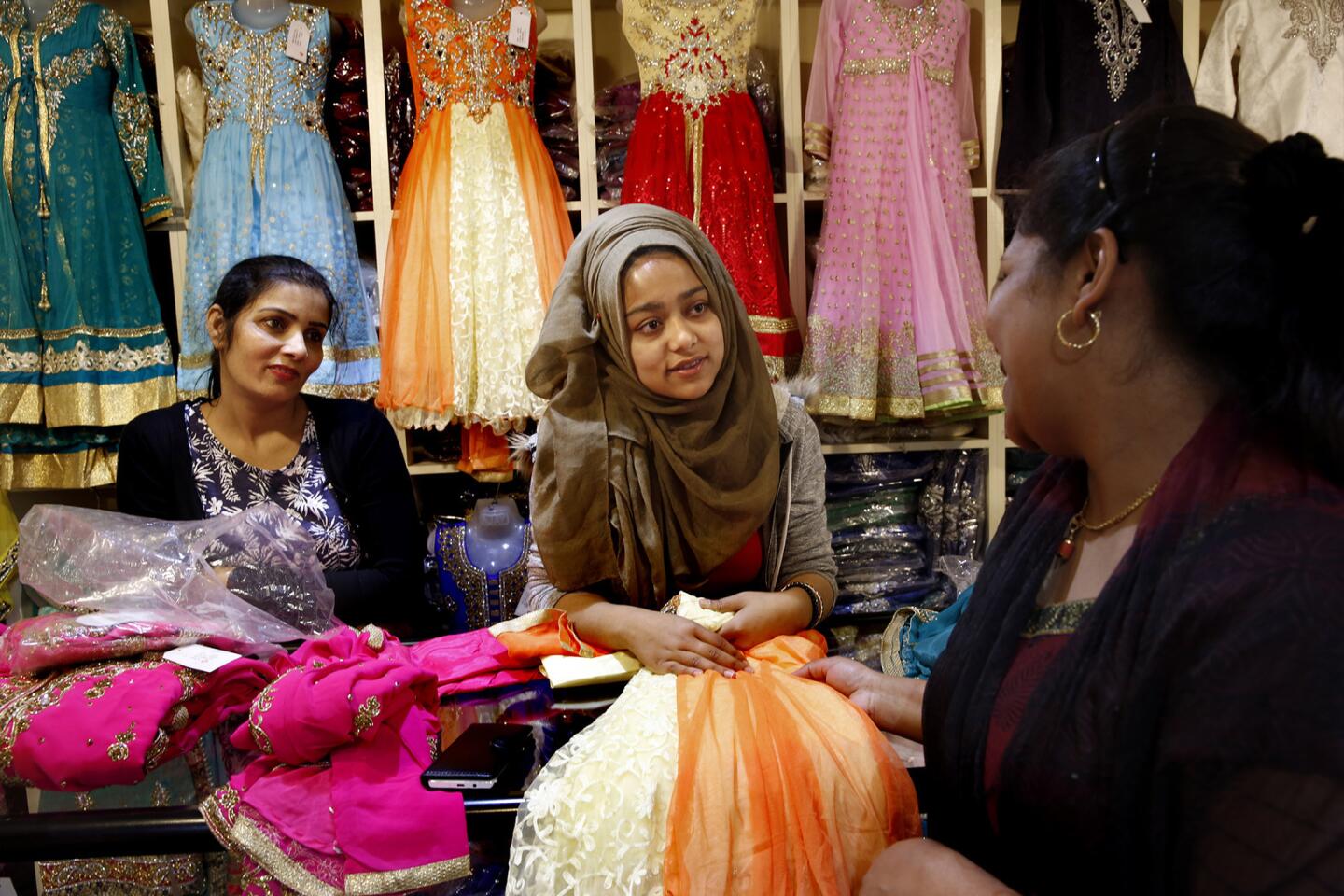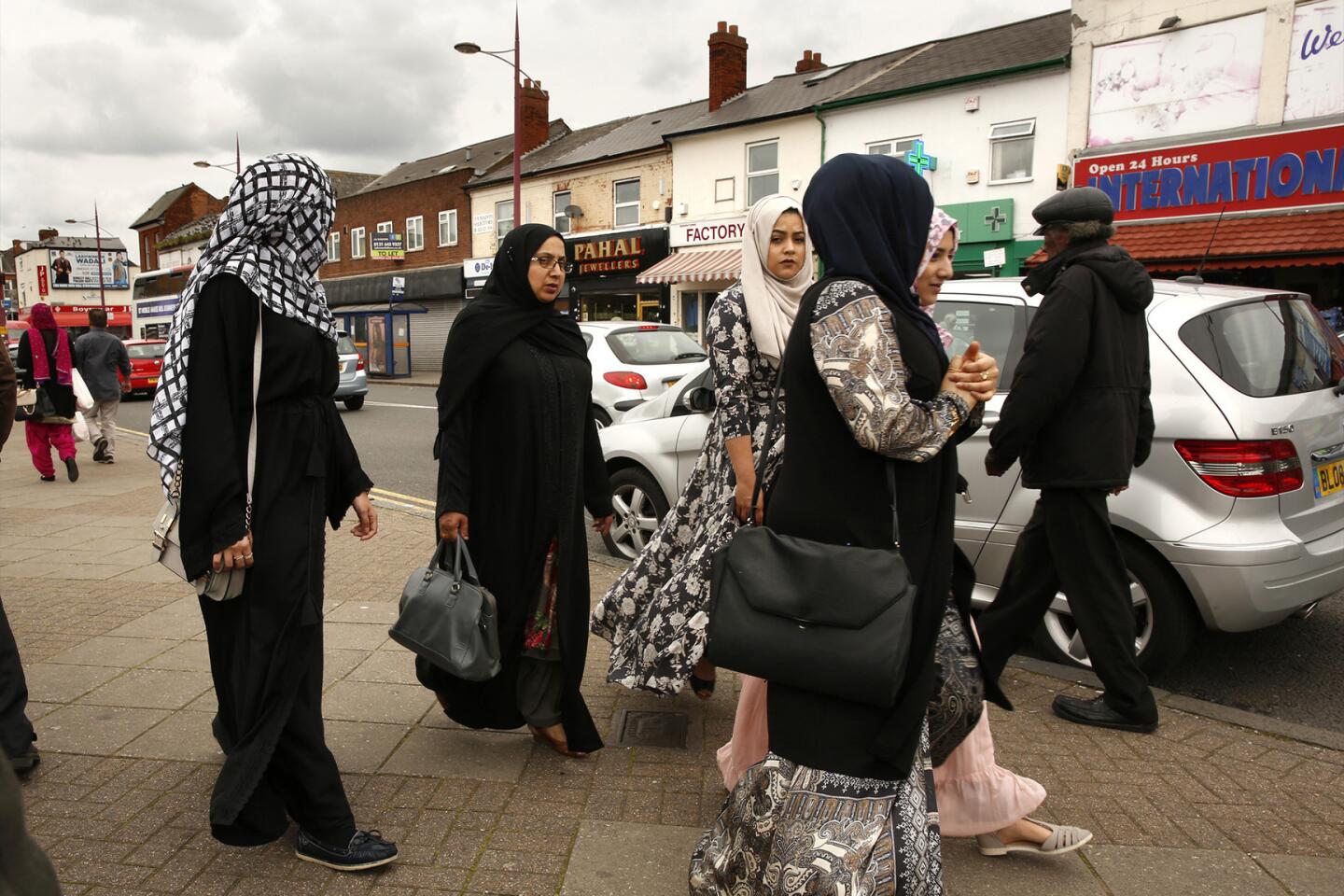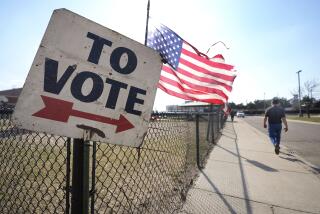Divided over immigration, one of Britain’s most diverse cities voted for ‘Brexit’
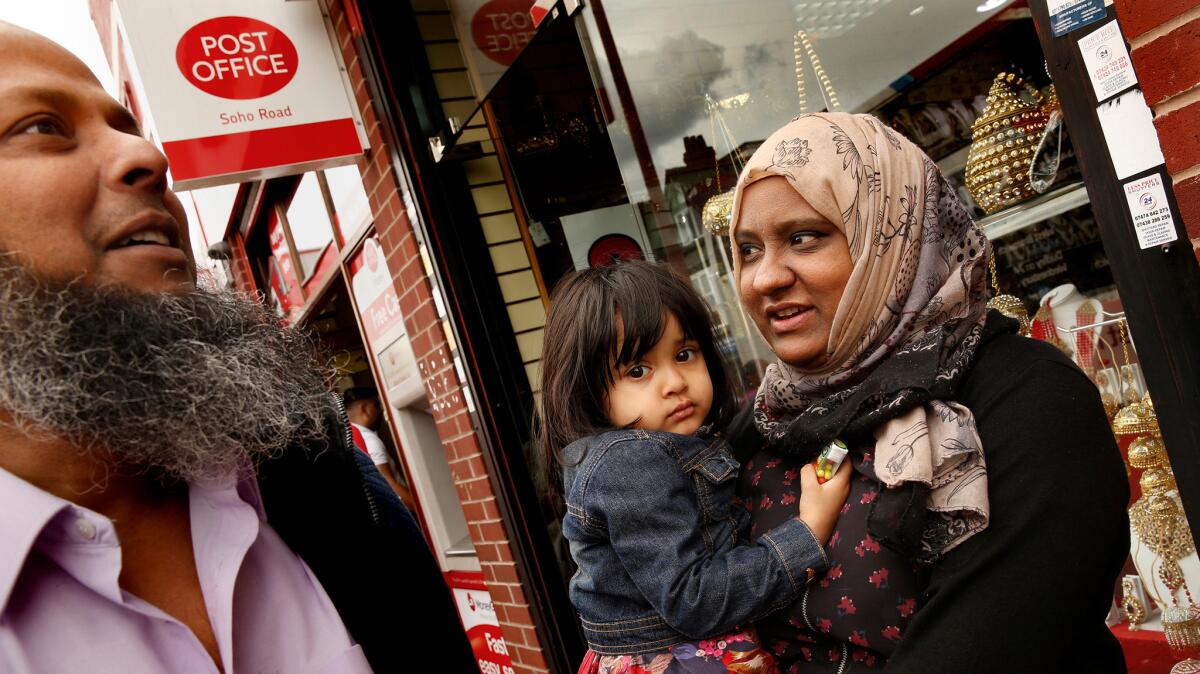
- Share via
Reporting from Birmingham, England — The sari shops, halal confectioneries and Sikh temples along Soho Road in Birmingham, Britain’s second-largest city, wouldn’t seem like fertile ground for anti-immigrant sentiment.
But residents of this famously multiethnic enclave echo many of the concerns expressed by white voters over the pressures created by recent immigration from Europe.
“This country before was very good,” said Mahmood Kafil, 42, a British citizen who immigrated 12 years ago from Sylhet, in northeastern Bangladesh. “The people who are coming now are very different. They don’t know how to live in Britain.”
The discomfort among Birmingham’s more established immigrant communities — mainly from South Asia — with an influx of Central and Eastern Europeans was a surprising factor in the June 23 referendum in Britain and helped tilt the vote in this city toward leaving the European Union.
Birmingham, a former industrial center of slightly more than 1 million people, favored leaving the EU by a margin of less than 4,000 votes. The vote nationwide was 52% to 48% in favor of exiting the bloc, which was formed after World War II to promote regional peace and economic cooperation.
Before the referendum, some analysts believed that Britain’s ethnically diverse cities would not be sympathetic to the rhetoric of the “Leave” campaign, which blamed European immigrants for straining public services and warned that Middle Eastern refugees landing on European shores could make their way to Britain.
Yet working-class immigrant communities — many of which pride themselves on having integrated into British society — were more divided over EU membership than many in the “Remain” camp had predicted. The battle played out in places such as Soho Road, a mile-long stretch of shops in west Birmingham that has been a destination for minority communities since the end of World War II.
Standing outside an Indian-run jewelry store with silver baubles arrayed in the window, Kafil, who voted Leave, recounted how his grandfather was the first member of his family to move to Birmingham in 1964. When Kafil arrived here, he struggled to master English while working at an Indian restaurant, eventually becoming the chef.
“We have lived here a long time, and we learned the British culture,” Kafil said.
In his grandfather’s time, South Asian immigrants often were taunted with, “Go home, Paki!” Kafil was only slightly less derisive when he described the families from Romania, Bulgaria and other Eastern European countries that have moved into his apartment building in the last five years.
“They don’t know the law,” Kafil said, his wife nodding in agreement. “They are shouting at all hours. They park their cars all over the place. They are drinking and smoking. They beg on the streets and pick things out of the dustbins. It is a shame for Britain.”
M.G. Gala, a postal worker who lived off Soho Road a quarter of a century ago after emigrating from New Delhi, voted Remain to make it easier for his children to travel and work in mainland Europe.
But Gala, 51, also acknowledged the arguments of Leave voters who said the area had taken a turn for the worse. As he left his car in a parking lot, he motioned toward two Romanian women sitting on the sidewalk next to bags of recyclables, surreptitiously begging for change.
“It was never like this before,” Gala said. “I don’t think Britain is getting many qualified migrants.”
Mirroring nationwide trends, results in Birmingham showed that more ethnically diverse areas tended to support remaining in the EU. But Birmingham is a solidly blue-collar city, where immigrant communities have been equally vulnerable to the stagnating wages and living standards that drove many disillusioned voters to reject the status quo.
“Undoubtedly, arguments that have purchase in white working-class communities also have purchase in migrant communities, and those are the pressures on housing and schools and the social problems that everyone faces,” said Jon Bloomfield, a research fellow at Birmingham University who specializes in European policy.
“There are lots of ethnic communities that are at the lower end of the labor market, and it’s fair to say the vote for Remain wasn’t as solid in those areas as you might have expected.”
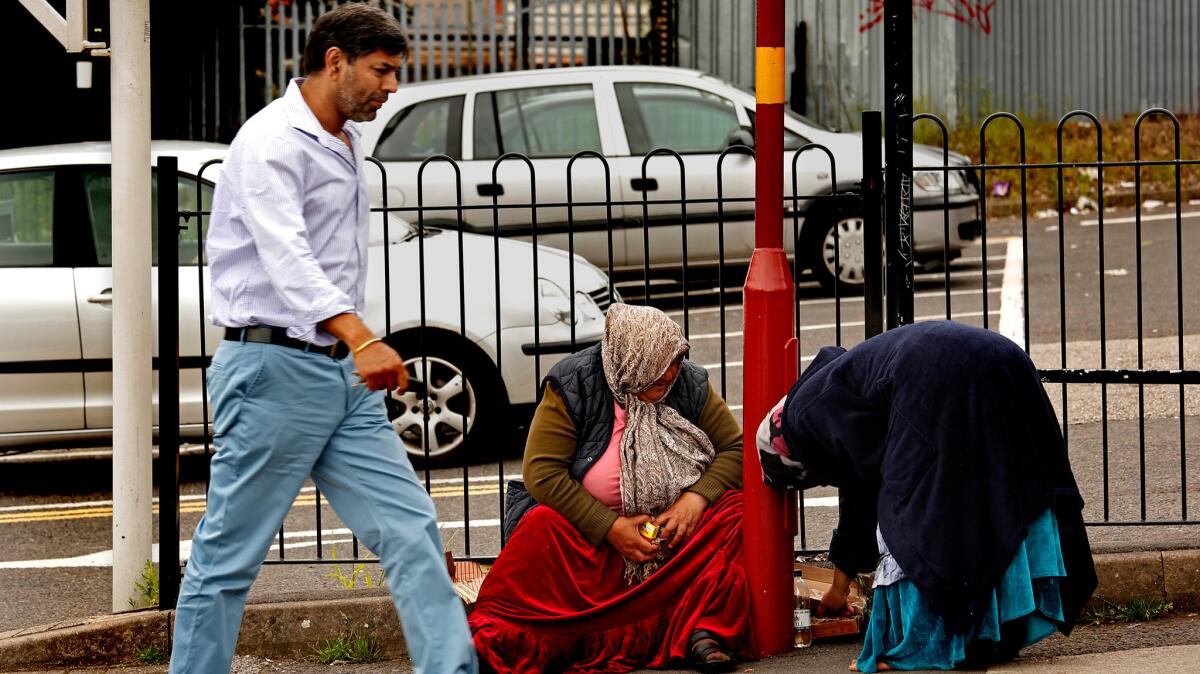
Nearly half of Birmingham’s residents are ethnic minorities, a share that has grown steadily since the first waves of British Commonwealth citizens from India, Pakistan and the West Indies migrated to the city after World War II. They were followed in the 1990s by Africans and Arabs fleeing conflict and persecution, turning areas such as Soho Road into vibrant mash-ups of ethnic and religious diversity.
Yet the communities have not always coexisted harmoniously. Friction between Muslims and Sikhs, as well as other communities, has sometimes resulted in violence.
Some Sikh voters said they were swayed by arguments from the Leave campaign that quitting the EU would prevent migrants from Syria and the wider Muslim world, who arrived in Europe by sea, from ending up in Britain — even though few such arrivals have been recorded.
“People are coming to Europe in boats and no one is doing anything about it. People wanted to put a stop to this,” said Dipinder Kaur Chana, who came to Birmingham as a child when her parents migrated from the Indian state of Punjab in the 1950s.
“It’s not about racism. We also faced racism when we came here. But people in the campaign were saying that in Britain there is no housing and no jobs, so we need to control immigration.”
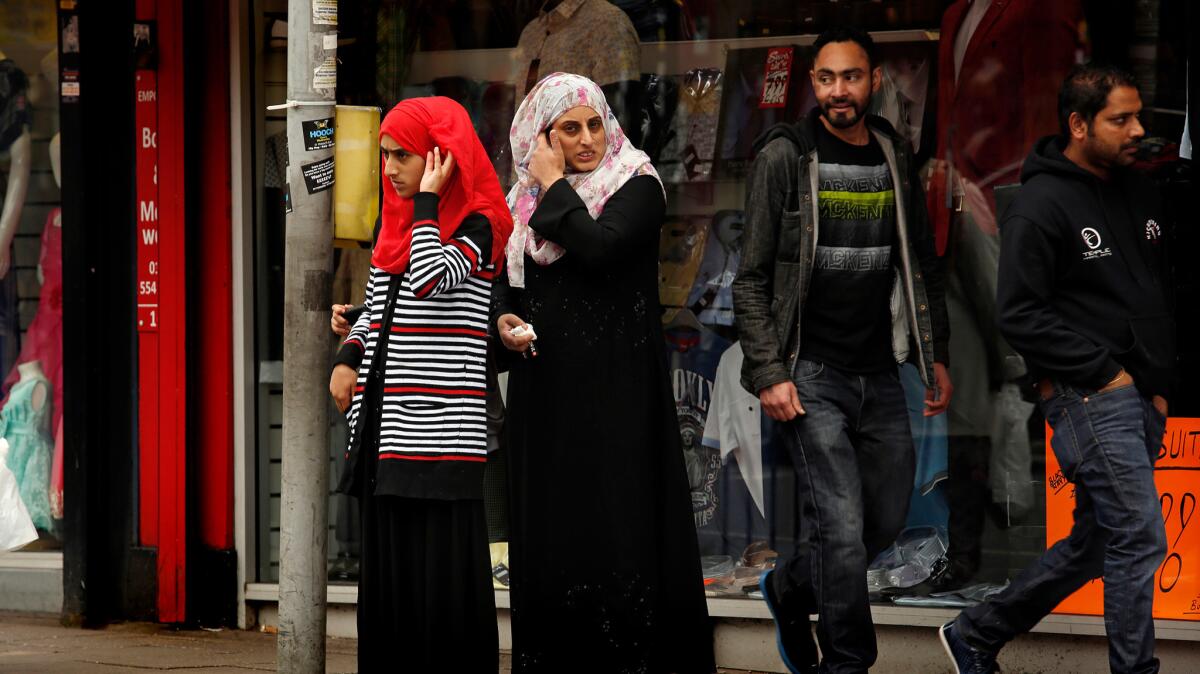
Chana’s son, Parminder Singh, was worried about new migrants from poor countries who compete directly with other immigrant groups for jobs.
A London School of Economics study said British workers’ wages have not been hurt by immigration, but that did not mesh with Singh’s experience. As a pharmacist for a national chain of drugstores, he said his hourly wage of about $30 had shrunk by about 20% over the last two years, which he blamed on more competition in the workforce.
“It’s putting pressure on us,” he said. “People come in who will do the job for less money, so it impacts us.”
Residents here now eye the future warily. Many have been upset by an increase in incidents of racism nationwide, causing some Leave voters to worry they’ve helped unleash greater intolerance.
Harminder Singh Bansal, whose family migrated from Uganda in 1968, said his fellow Sikhs often were thought by non-Asian communities to be Muslim.
“Whenever there’s an instance of Islamic extremism, we bear the brunt. We should be more tolerant of one another,” said Bansal, 52, who said he voted Remain for the sake of his young daughters, 9 and 7.
“When we came in 1968, we also suffered problems and struggles to fit in. So I hope we don’t close the door. People should have the same opportunity we had.”
Follow @SBengali on Twitter for more news from South Asia
ALSO
For thousands of Brits, France is home. But what happens after Brexit?
This British steel town got millions from the EU, but voted to leave anyway
In London’s financial center, resignation about ‘Brexit’ — and a hope that nothing will change
More to Read
Sign up for Essential California
The most important California stories and recommendations in your inbox every morning.
You may occasionally receive promotional content from the Los Angeles Times.
